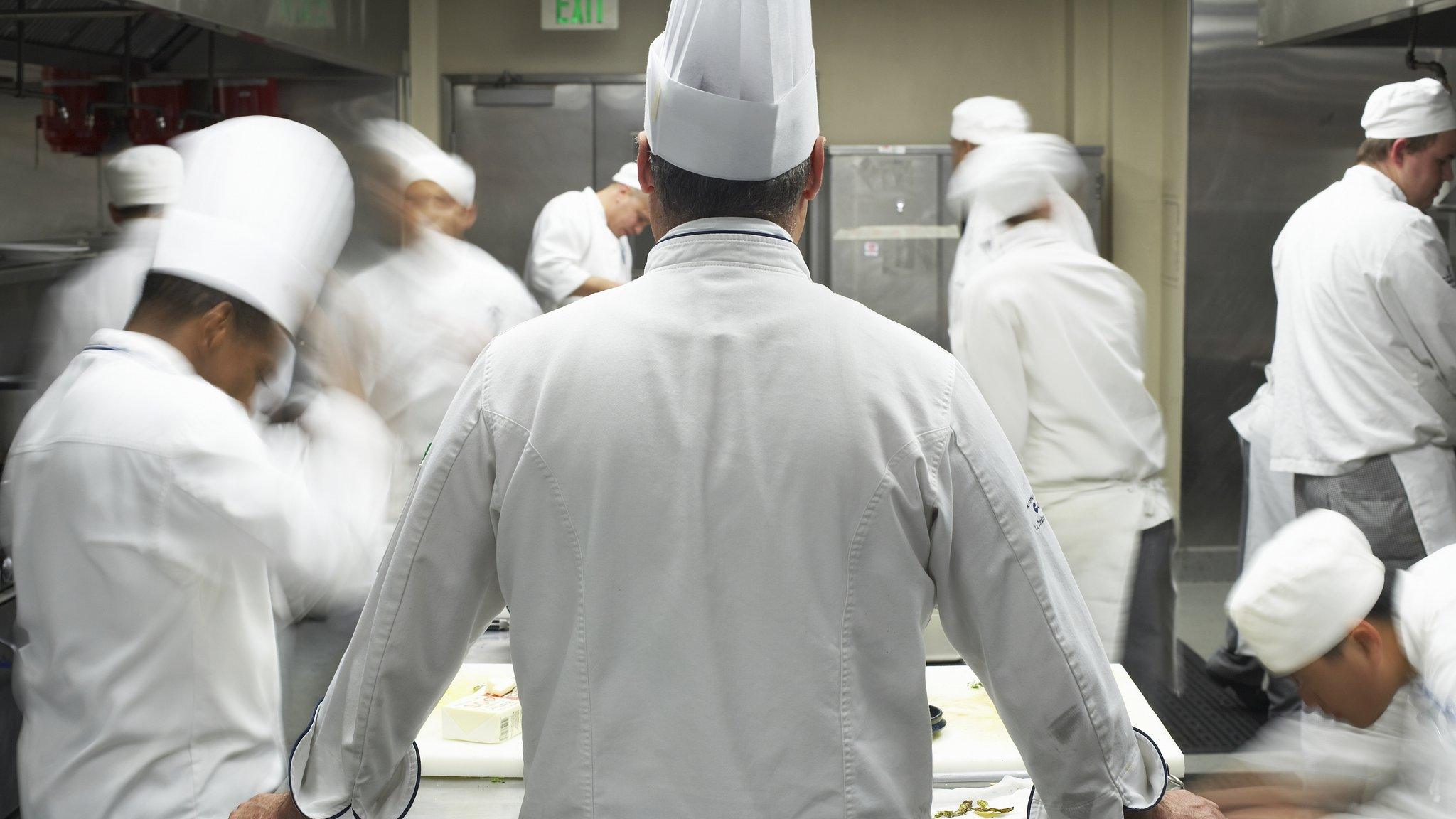Chefs push for better mental health support
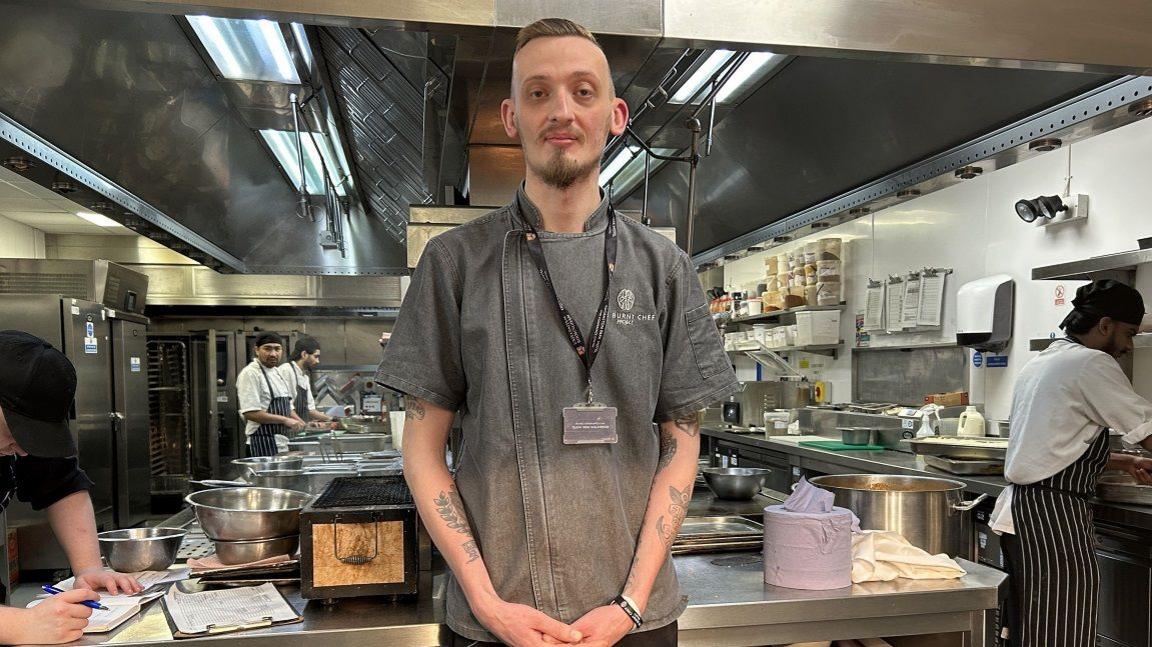
Sam Sears said he missed out on family events due to his work as a chef
- Published
Hospitality firms are being urged to do more to support chefs in their kitchens with their mental health after one says there is still a stigma around the issue.
Sam Sears, deputy head chef at the Edgbaston Park Hotel, Birmingham, said the demands of his role affected his life.
"It can be very stressful... long hours, missing out on family social events because of work," he added.
Having been supported by The Burnt Chef Project, an organisation set up to raise awareness of mental health in the industry, Mr Sears said he was now part of their efforts.
"I've only ever worked in kitchens and I used The Burnt Chef Project when I wasn't feeling great...and then from that it led me on to becoming an ambassador," he added.
"Support is there, you just have to reach out and find it, never be afraid to ask.
"There's still lots of work for businesses to do themselves to get into a better place for their employees. Here at the hotel, we have designated mental health first-aiders."
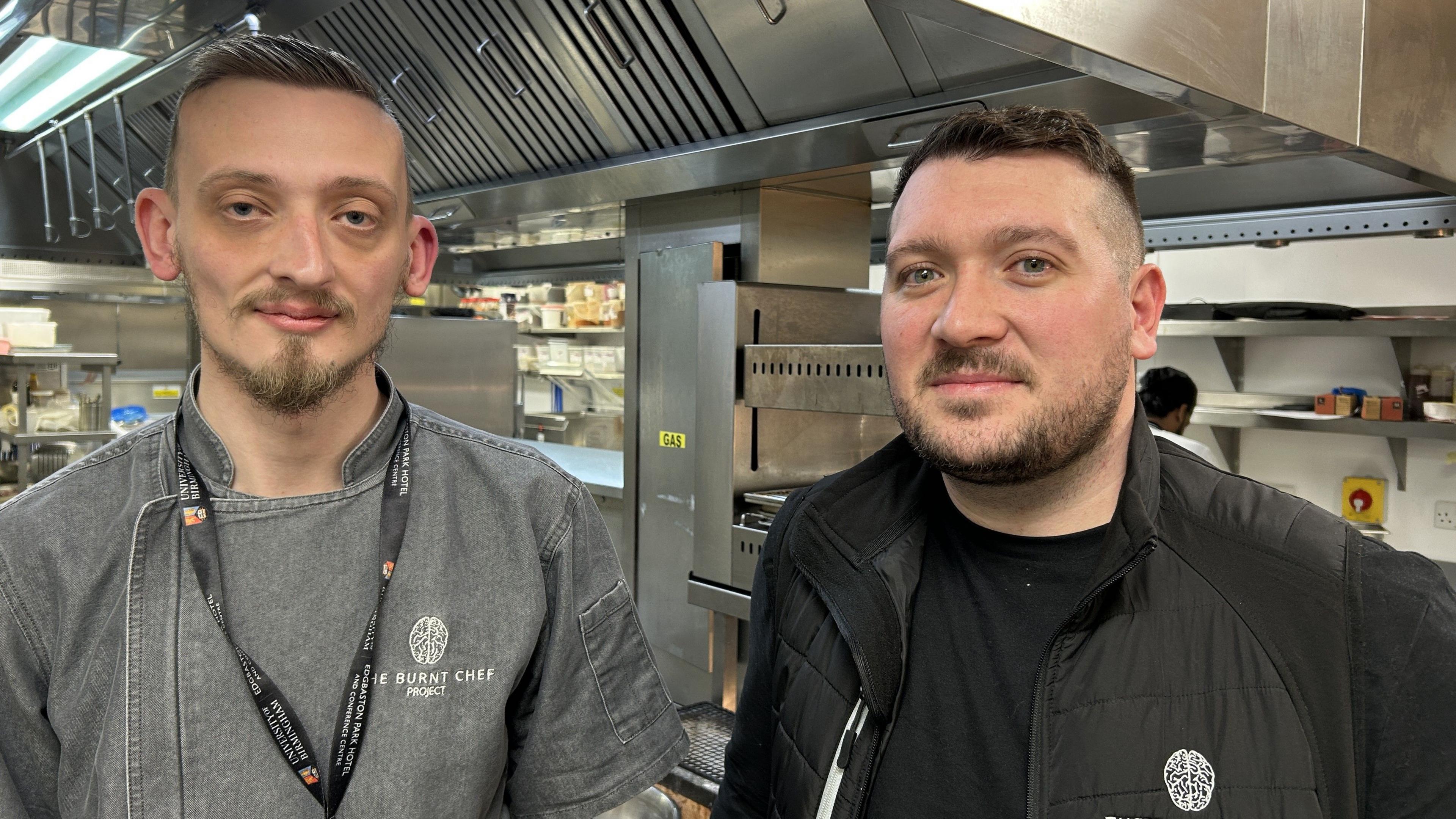
Sam Sears and Matt Loughery both work with The Burnt Chef Project
Mental health in hospitality is an issue that has received wider attention in recent years.
In 2022, following the success of TV series The Bear, about a chef at his family's struggling Chicago restaurant, chef Tom Kerridge said it was "the best dramatised depiction I've seen of working in a kitchen".
Mr Kerridge said the pressure of trying to win a second Michelin star caused him health issues.
While Heston Blumenthal told BBC Newsnight in 2024 that, for the first 10 years of his career, he worked about 120 hours each week.
The revelation came after he announced he had received a diagnosis for bipolar.
He added he could not bring himself to watch The Bear over fears it could trigger his mental health.
Pressure in the kitchen
Matt Loughery, from Birmingham, is partnerships manager at The Burnt Chef, which offers a 24/7 support line and therapy for chefs who are struggling.
"Any kitchen is going to have struggles from time to time, particularly in the peak of service but there's a healthy level of stress," he said.
In February, Mr Loughery will be among people from the industry discussing mental health at the Night Time Economy Summit at Hockley Social Club, Birmingham.
"I think people do potentially consider chef's mental health more now than they did say five years ago," he added.
"People do understand that it's a pressurised environment."
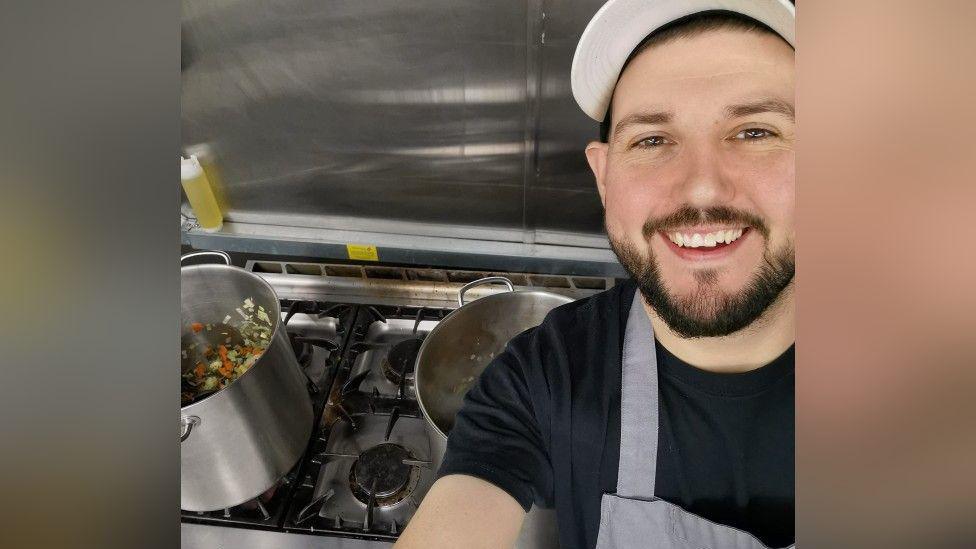
Aaiden Dalton said the hospitality industry made his relationships "non-existent"
Aairon Dalton, founder of Solihull-based social enterprise Food for Thought, which also looks to support chefs' mental health, said he started it after going through a mental health crisis in 2022.
Having been a chef for 20 years, he said his relationships were "non-existent" and he therefore had no support network in place to help him when his father died.
The organisation ran a 24-hour event on Wednesday to raise awareness including conversations about mental wellbeing in the kitchen.
Mr Dalton said he hoped groups including Food for Thought could help stop chefs from leaving the industry due to mental health issues.
"There are some fantastic individuals out there that need that extra little bit of support to put them back on track with their career," he added.
If you have been affected by the issues in this story, help and support is available via the BBC Action Line.
Get in touch
Tell us which stories we should cover in Birmingham and the Black Country
Follow BBC Birmingham on BBC Sounds, Facebook, external, X, external and Instagram, external.
Related topics
- Published31 December 2023
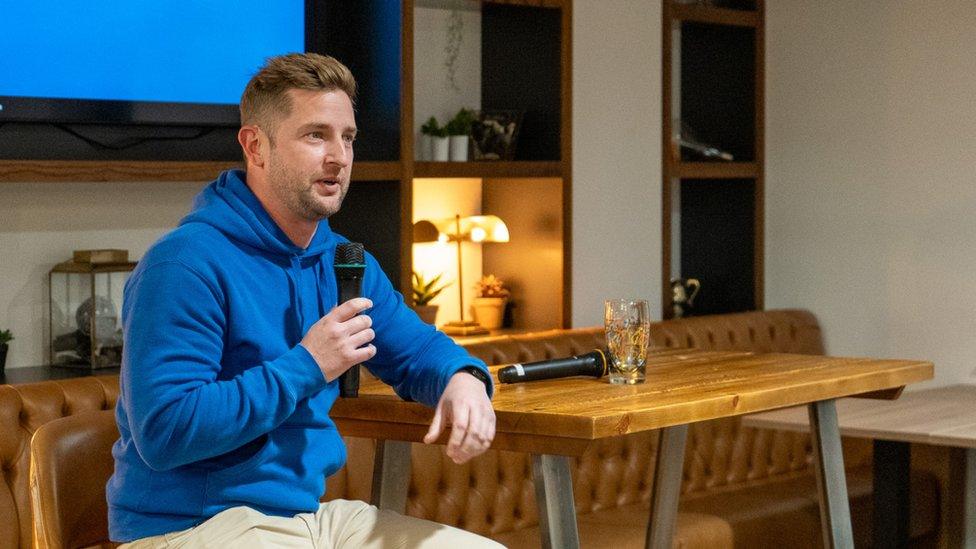
- Published13 November 2024
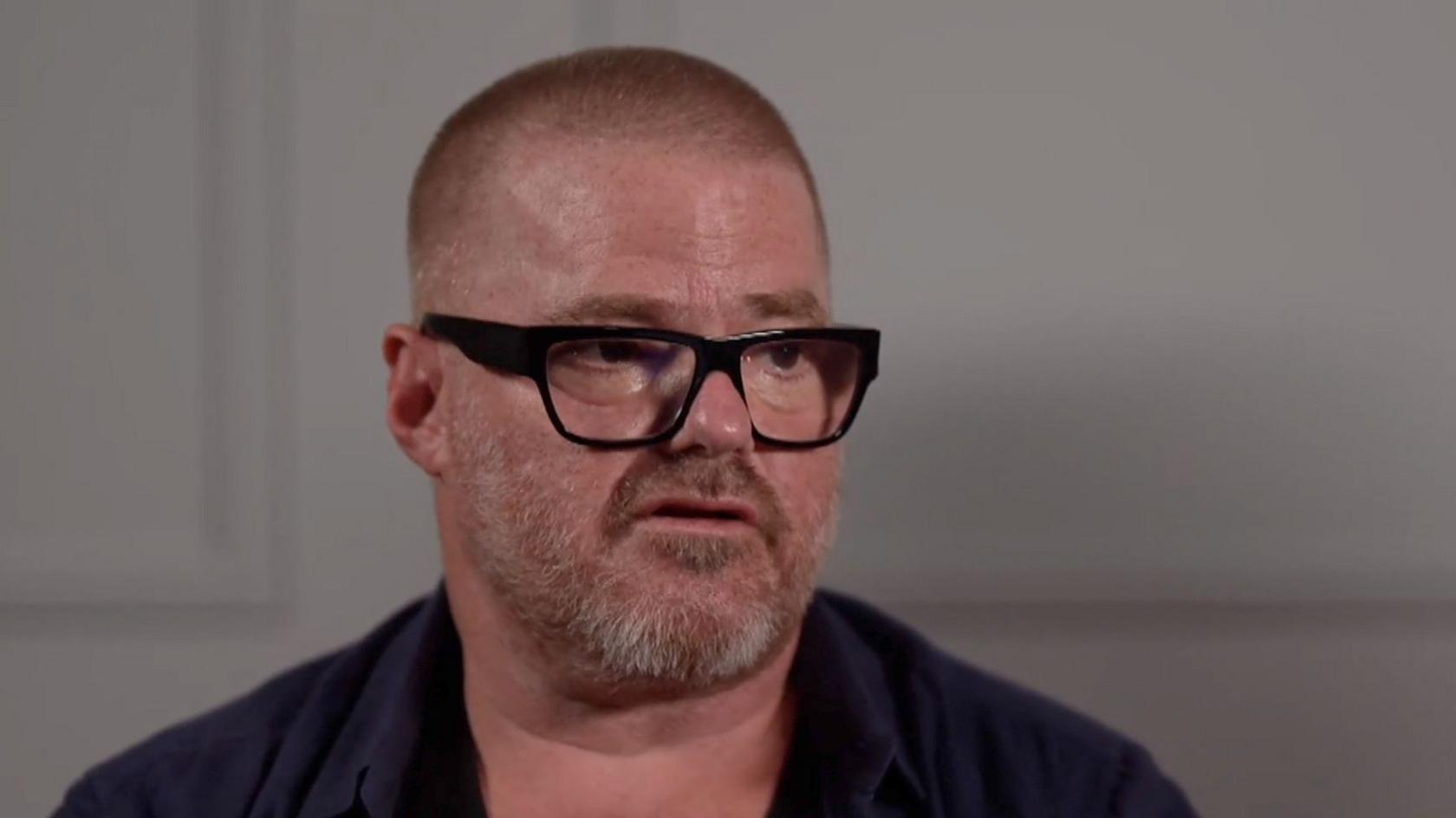
- Published20 January 2023
